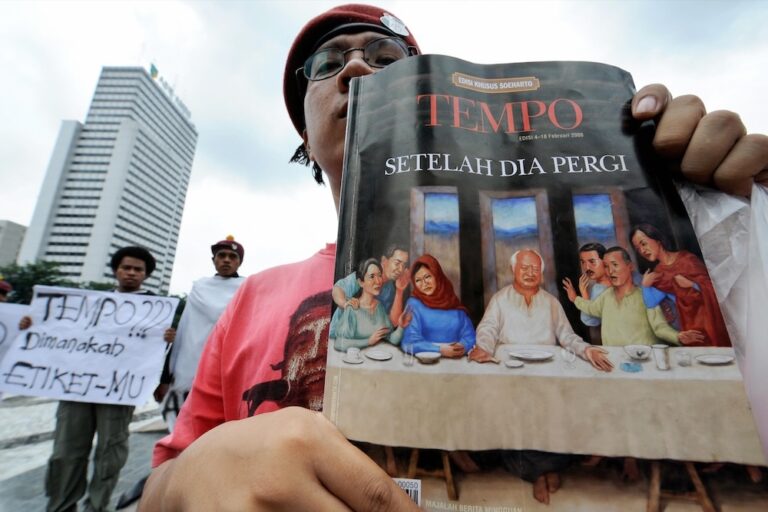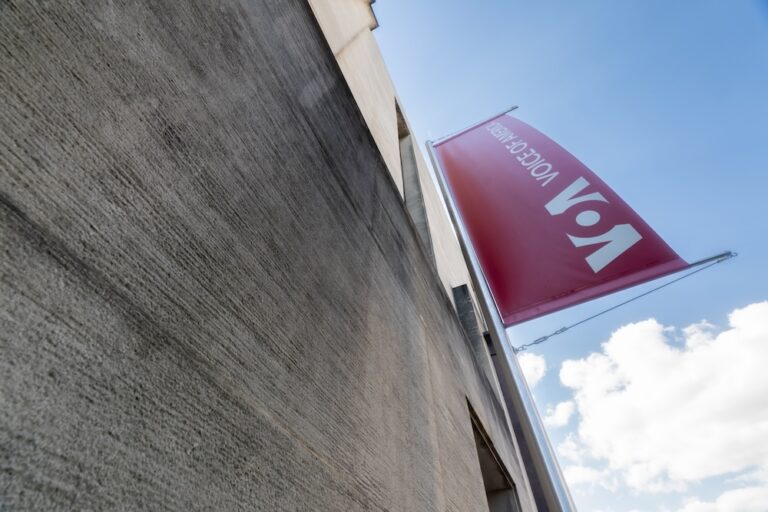(RSF/IFEX) – Reporters Without Borders has hailed the warrant issued on 1 March 2007 by Sydney coroner Dorelle Pinch for the arrest of Yunus Yosfiah, the former Indonesian army officer who led the attack on the East Timor border town of Balibo on 16 October 1975 in which five journalists working for two Australian TV […]
(RSF/IFEX) – Reporters Without Borders has hailed the warrant issued on 1 March 2007 by Sydney coroner Dorelle Pinch for the arrest of Yunus Yosfiah, the former Indonesian army officer who led the attack on the East Timor border town of Balibo on 16 October 1975 in which five journalists working for two Australian TV stations were killed.
“We applaud Dorelle Pinch’s efforts and determination to end the silence and impunity that have surrounded this case for the last 30 years,” Reporters Without Borders said. The warrant so far has no effect outside Australia. Pinch said the Australian government had asked Yosfiah to come and testify to the inquest she is conducting at the request of the family of one of the journalists, Brian Peters.
Reporters Without Borders also called on Gough Whitlam, who was Australia’s prime minister at the time of Indonesia’s invasion of East Timor, to give evidence to the inquest. “Whitlam’s testimony would serve to confirm or rebut the testimony given by former state employees that Australia’s most senior officials were told what had happened to the five journalists in Balibo less than an hour after they were killed,” the organisation said.
Pinch issued the arrest warrant after Yosfiah, in an interview for Australia’s ABC radio on 1 March, publicly refused to go to Sydney to testify to the inquest and denied having any contact with the five journalists. During the 28 February hearing, the testimony of Col. Geoff Cameron, a former member of the Australian intelligence services, supported the statements made by previous witnesses that it was Yosfiah who led the operation in which Balibo was seized.
According to Cameron and former Australian navy linguist Robin Dix, senior Australian government officials, including the prime minister, were informed of the journalists’ deaths within the hour. Dix told the court he intercepted the Indonesian army message which, translated, said: “Five Australian journalists have been killed and all their corpses have been incinerated or burned to a crisp.” Dix added that the Indonesian word used for “killed” – dibunuh – indicated deliberate intent.
After translating the message, Dix lost no time in sending it to the prime minister, defence minister, foreign minister and other senior officials. Within the hour, Ray Norton, one of Cameron’s colleagues at the Shoal Bay listening station, received a call from the prime minister’s department asking if the information was correct. When Norton replied that it was not a secure line, the caller hung up and nothing more was heard from the department.
One of Whitlam’s advisers at the time, John Menadue, told the Australian newspaper “The Herald” on 28 February that he had no memory of these messages.
Pinch has adjourned the inquest until 1 May in the hope that in the meantime more potential witnesses will be persuaded to come and give evidence.


